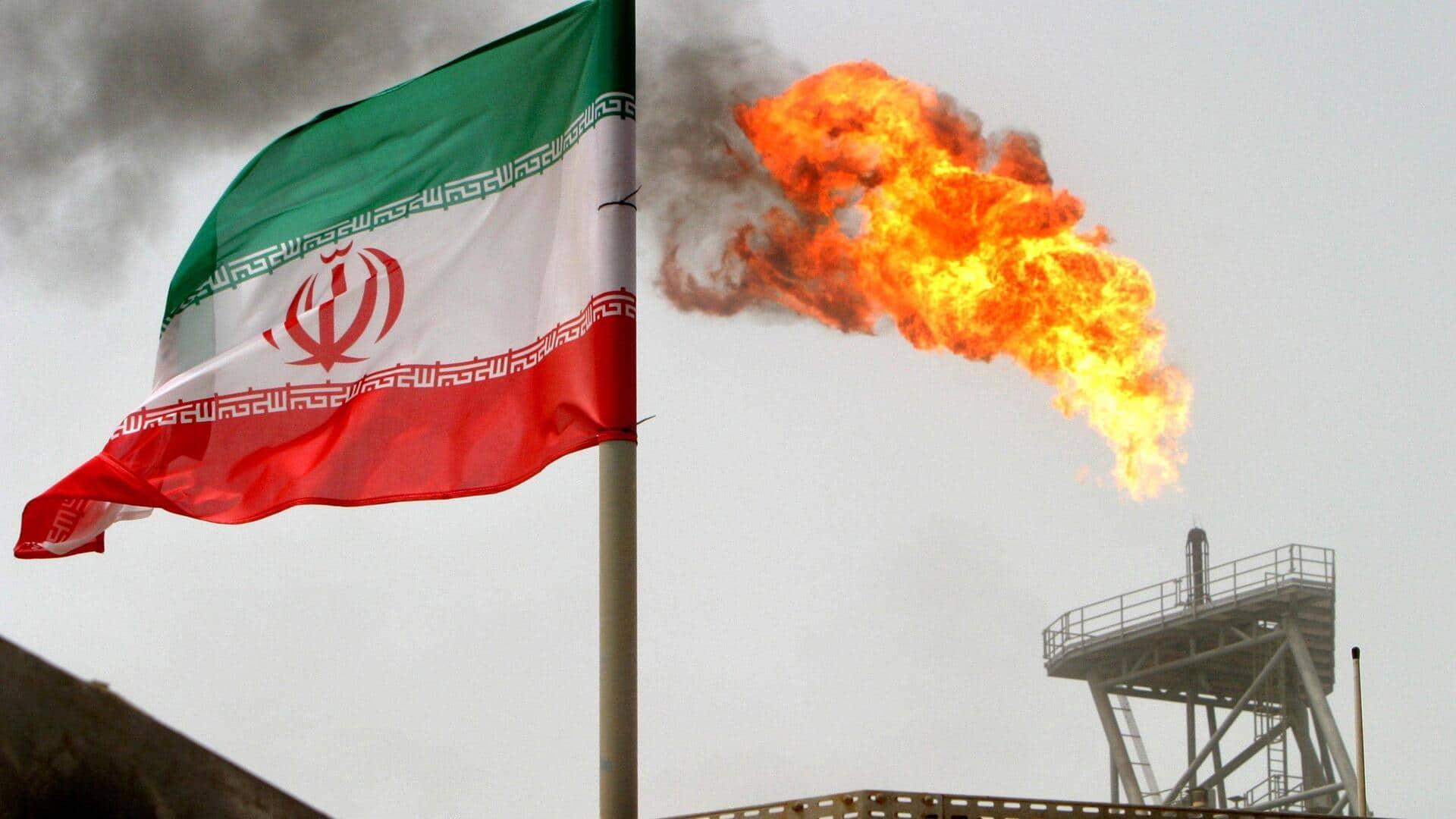
Iran-Israel conflict driving up oil price; will it affect India
What's the story
The escalating tensions between Iran and Israel have led to a marginal spike in global oil prices. The situation intensified after Iran aunched 180 missiles at Israel on Tuesday, a move that has stoked fears of further military escalation and potential disruption to global oil supplies. Global crude oil prices rose by over 4% on Wednesday, with Brent closing at $77.62. Responding to the attack, Israeli Prime Minister Benjamin Netanyahu vowed retaliation against Tehran, stating it would "pay for it."
Market disruption
Potential Israeli retaliation could disrupt global oil market
Reports suggest that Israel is considering striking oil terminals and refineries of Iran, which is the ninth largest oil producer. A former senior US military officer with experience in the region stated, "There are so many things they can hit, and...Iran's not going to be able to stop them." Analysts at ClearView Energy consulting agency predict that if Israel were to disrupt Iran's oil output, international crude prices could rise to as high as $86 per barrel.
Oil production
Iran's significant role in global crude oil market
Bjarne Schieldrop, chief commodities analyst at SEB, further notes that a major escalation could easily take the oil price to $100. Before Iran's missile attack, oil was trading at just above $71 a barrel. However, Brent crude, the international benchmark for oil prices, rose to nearly $76 a barrel on Wednesday and closed at $77.62 on Thursday—a rise of 5.02%. This spike came after US President Joe Biden confirmed discussions with Israel about a potential strike on Iranian oil facilities.
Strategic move
Potential closure of Strait of Hormuz could skyrocket oil prices
Experts also note that oil prices could skyrocket if Tehran chose to shut the Strait of Hormuz at the mouth of the Persian Gulf in response to Israel's actions. The Strait of Hormuz is a critical global oil passage, with a fifth of the world's total oil passing through it daily. Data from analytics firm Vortexa shows that an average of 20.5 million barrels per day (bpd) of crude oil passed through Hormuz from January-September 2023.
Economic fallout
Global impact of rising oil prices amid escalating tensions
A surge in oil prices could have far-reaching global impacts. In the US, it could influence the upcoming November 5 polls as Republicans may use this as evidence that Democrats cannot be trusted on economy or foreign policy. Similarly, countries like the United Kingdom and India, which are highly dependent on West Asian oil, would also be significantly affected. Despite increasing oil imports from Russia, India continues to rely heavily on Middle Eastern oil and gas imports.
India
How wider conflict can impact India
Most of India's energy imports will be imperiled if a full-fledged conflict breaks out, as vital oil shipping routes such as the Red Sea and the Strait of Hormuz may be interrupted. A disruption in India's oil and gas supplies might destabilize the economy, raising inflation and compelling the Reserve Bank of India (RBI) to keep high interest rates. According to Crisil, India's oil imports plummeted 32.4% year-on-year in August 2024 as global crude oil prices fell significantly.